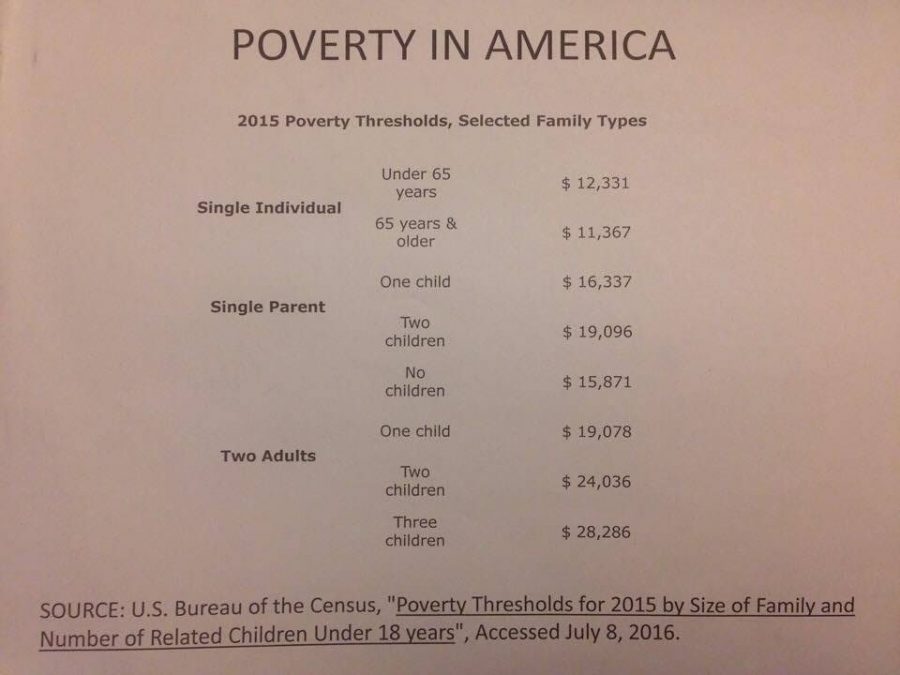Luke Schaefer, professor of Poverty Solutions at the University of Michigan’s School of Social Work, engaged students in a discussion about reasons for poverty in America in the Little Theatre during D-block last Thursday. The event was organized by Close Up teachers Claudia Wu and Terry Yoffie for their class.
Co-author of $2.00 A Day Living On Almost Nothing In America, Schaefer has presented his findings on living in poverty to a number of institutes throughout the country, according to their website.
Schaefer began his presentation by explaining that in middle school, Schaefer’s dad went through a career change, and his family went from “comfortably middle class” to “right along the poverty line,” according to Schaefer. He “knew what is was like to have a status loss,” particularly when the people around him were “pretty affluent.” Although his family fell back on his grandparents, he said seeing into “both worlds” was what led him to pursue “wanting to bringing those two sides together.”
In an open discussion about surviving on the poverty line, Schaefer said 75% of Americans wanted to see the minimum wage raised. “I can’t think of that many things that 75% of Americans agree on,” he said.
Schaefer’s book followed Rae McCormick, a Walmart employee to show the environmental downfalls of low wage jobs. When McCormick’s car was out of gas, her boss threatened to fire her if she couldn’t find a way to work.
To demonstrate the emotional struggle of losing a house that many low income families face, Schaefer asked students. “What if you got home to all your stuff dumped on the front lawn?” Many students gave negative responses, such as “shame” and “embarrassment.”
Schaefer also discussed how many capable students from low income households do not apply to college because they are discouraged by the cost. According to Schaefer, the University of Michigan addressed the issue by sending mail targeted toward these students with financial aid estimates.
One woman in the audience involved with North’s Transitioning Together (T2) program also commented on the struggles of paying for college, noting that T2 is offered to students who are the first in their families to attend college. The program’s students are paired with experienced adults who guide them through the college application process.
“It boils down to a perception of opportunity,” said Schaefer. “What if I told you you weren’t getting a job when you graduate? You’re going to go to prison. Understand how every facet of your experiences impact how you see the world.”
Schaefer concluded, “Break down these barriers. If you go to the food bank, if you volunteer, it’s easy to stand behind the counter serve food or give out bags or groceries and never talk. What I’m encouraging you to do is get out from behind the counter and get to know people—maybe your own age, maybe not—who have very different experiences because I think both them and you will be a little bit better.”
Guest speaker Luke Schaefer discusses economic barriers with Close Up class
May 17, 2017
Tags:
Donate to The Newtonite
More to Discover
















































